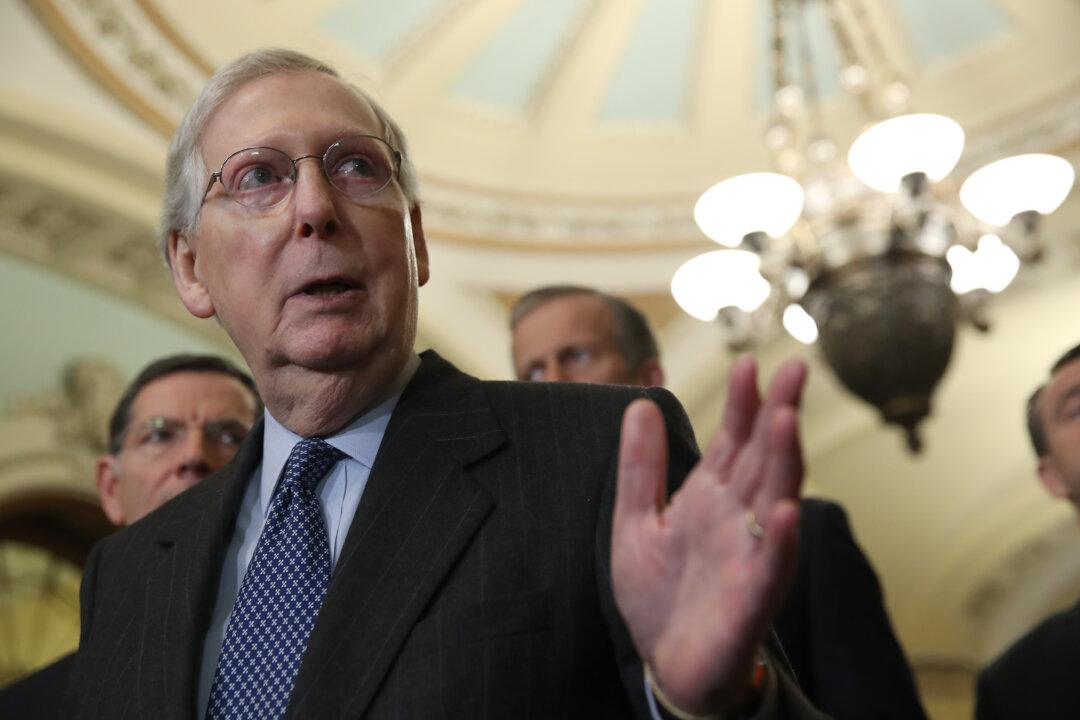WASHINGTON—Senate Democrats have forced cloture votes 128 times on President Donald Trump nominees to the federal courts and executive branch positions, 10 times as many times as Republicans did during his predecessor’s first two years in the Oval Office.
By comparison, during the first half of President Barack Obama’s initial term, there were only a dozen cloture votes on the president’s nominees, according to data compiled by Senate Majority Leader Mitch McConnell (R-Ky.).





